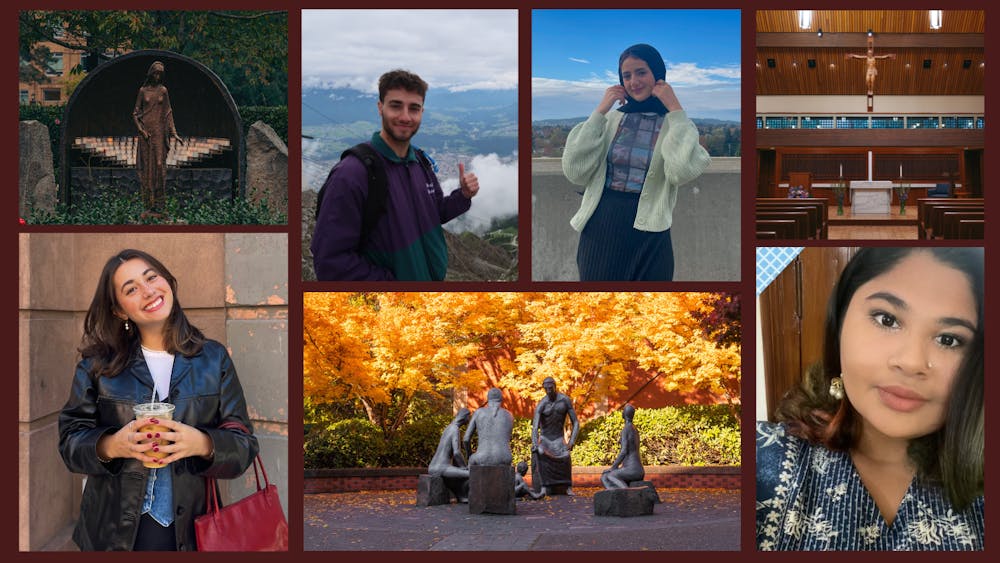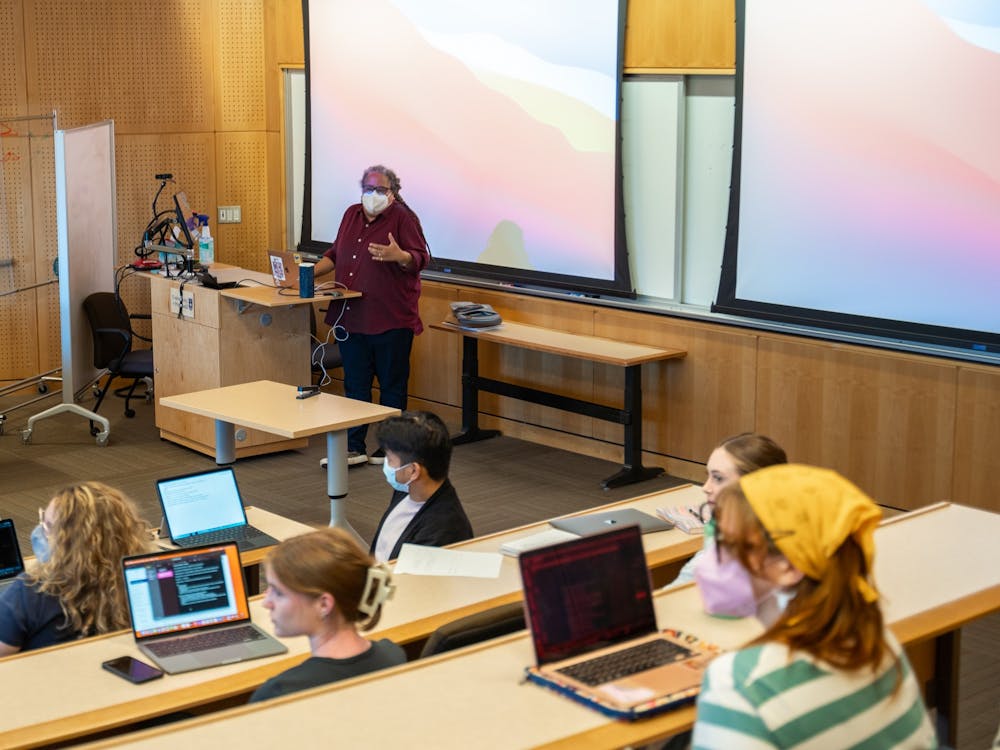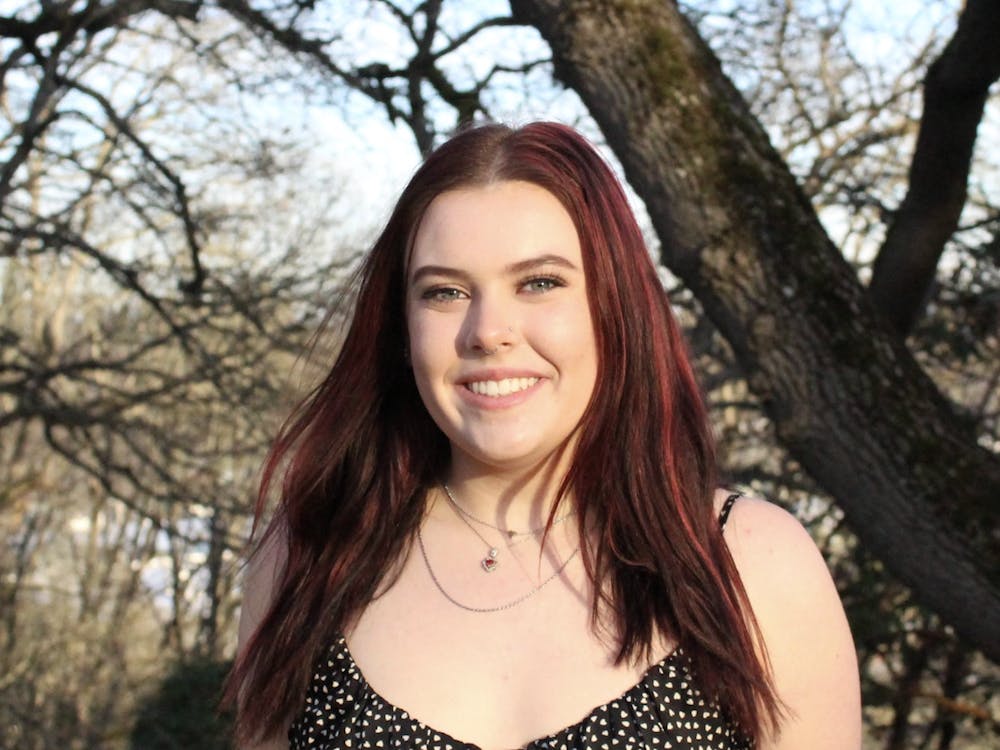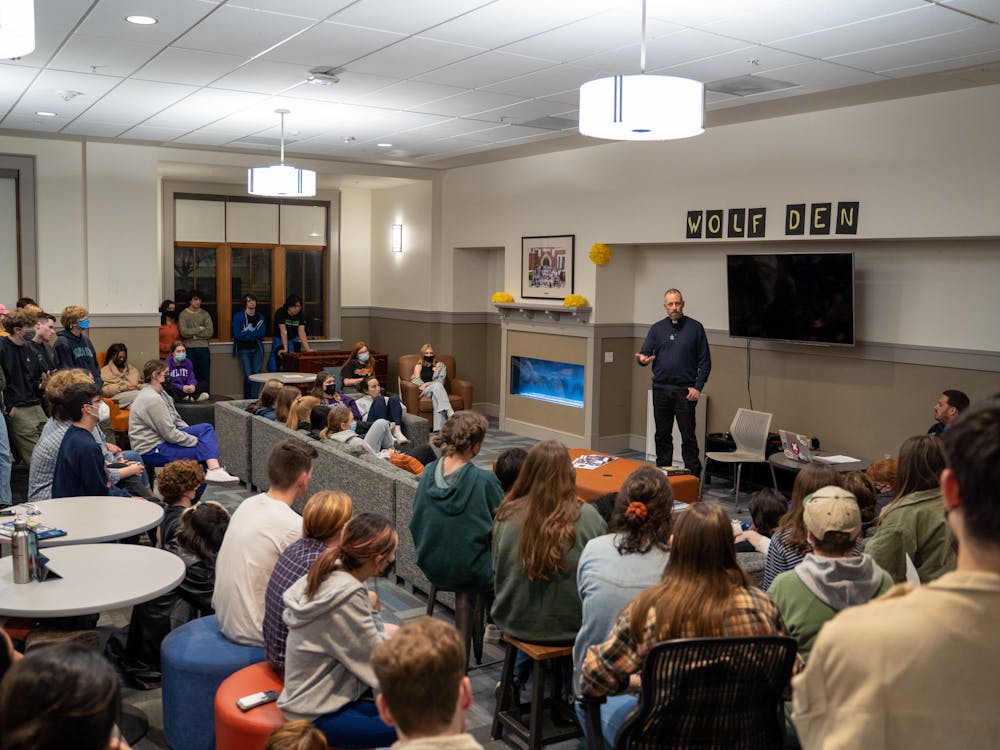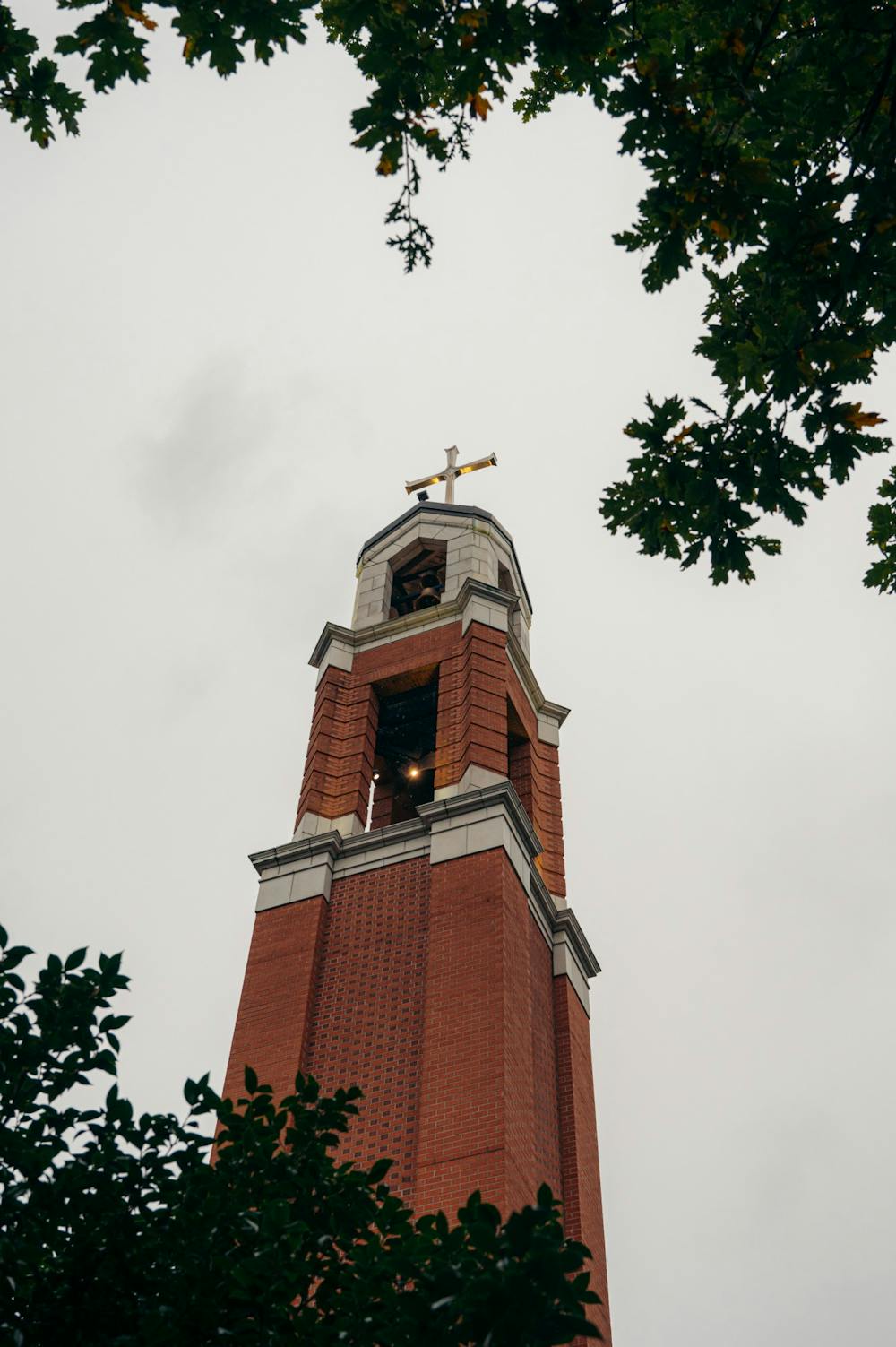
The ritual sound of the bell tower chiming might not even enter the conscious mind for some. But for others, it’s a reminder of UP’s long-standing Catholic tradition.
“The bell tower serves as a daily reminder that our faith rings in our lives throughout the day,” according to UP’s website.
It’s no secret that the University of Portland is a Catholic institution. Religious iconography can be found all over campus. However, to many students, these symbols of Catholicism hold no deeper meaning.
UP’s student population continues to grow more diverse each year. Only 32% of UP’s freshman class self-identify as Catholic. This number saw a small spike this year, after a consistent decrease since 2012.
As a Holy Cross institution, UP’s student population is much more diverse. For reference, at the University of Notre Dame, another Holy Cross institution, 80% of the class of 2022 identified as Cathoilic.
One factor at play is geography. Oregon is frequently ranked among the least religious states in the US.
Although this may play a role in UP’s diversity, Fr. John Donato, vice president for student affairs, believes Catholic values are a magnet for diverse students.
“Because we value the development of the whole person, the University honors faith and reason as ways of knowing, promotes ethical reflection and prepares people who respond to the needs of the world and its human family,” according to UP’s mission statement.
In the spirit of welcoming diversity, UP’s goal is not to convert students, but to develop well-rounded students.
“My hope is that diversity encourages others to explore,” Donato said. “By saying that we are Catholic, we have a frame of reference, but we want to have a conversation with everyone, even the people who don't have any religion.”
Fostering religious diversity, UP gives space to various religious communities on campus. However, there are still many underrepresented groups that seek community and support.
Jewish student perspectives
Jewish students have found a community in UP’s Jewish Student Union (JSU), an active student club that meets to celebrate Jewish holidays and events.
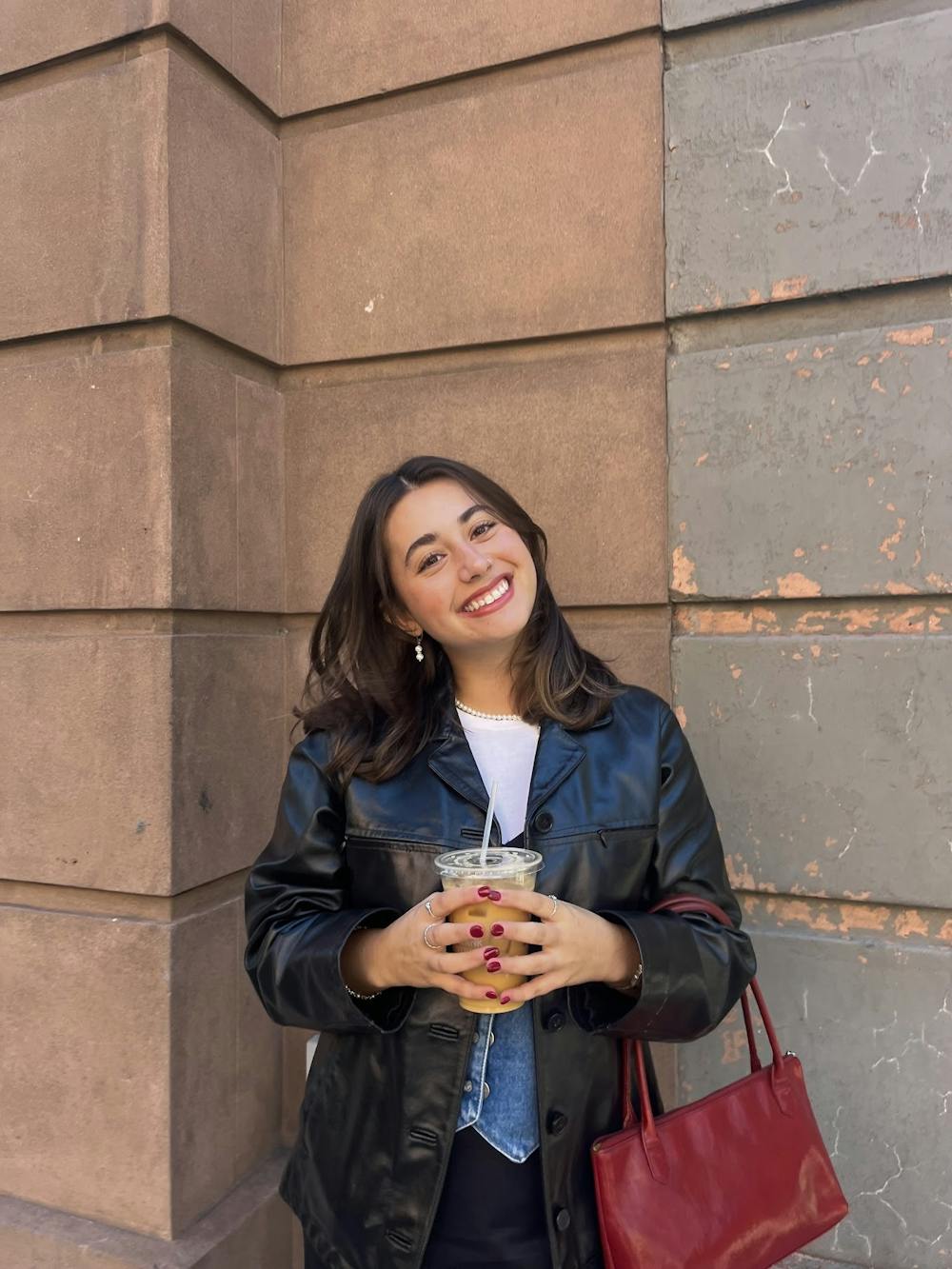
Ronni Ariel is the president of the Jewish Student Union on campus.
Photo courtesy of Ronni Ariel.
Ronni Ariel, JSU president, chose UP for its nursing program. Although religion wasn’t a factor in her decision, she and her family were hesitant about UP’s Catholic traditions.
“When I came to UP as a freshman, it was a bit daunting to come here as a Jewish person,” Ariel said. “I remember seeing crosses and Jesus all around. I lived in a dorm, so there was hall Mass and I felt like I had to go. The first month or so took a bit of adjustment because I felt like I had to participate in all of these Catholic activities.”
Although the Jewish community at UP is small, JSU has grown significantly over the years. Coming together for holidays, celebrations, and cultural dialogues, JSU gives students a space to connect with their religious or cultural ties.
This semester, JSU members celebrated Rosh HaShanah, the Jewish New Year.
“We just got the word out, and then had a bunch of people come,” JSU treasurer Sammy Pettinato said. “We made Challah with them, which is a Jewish bread. And then we had apples dipped in honey, a traditional snack for that holiday. We just played good Jewish music and hung out.”
While their community is thriving at UP, Jewish students still feel the effects of being on a Catholic campus.
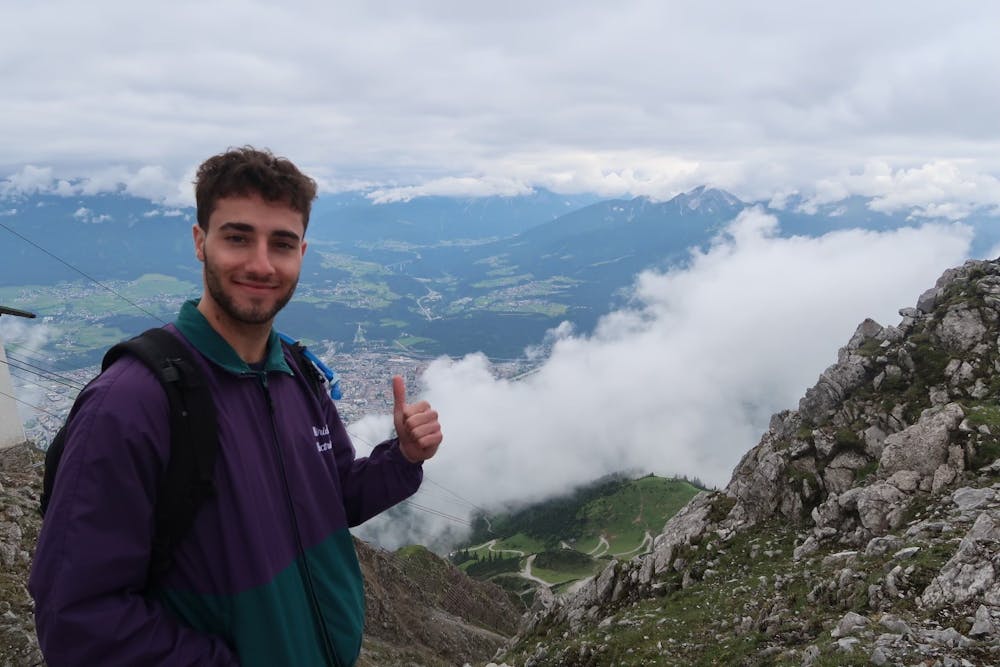
Sammy Pettinato is the treasurer of the Jewish Student Union.
Photo courtesy of Sammy Pettinato.
“A lot of the effort falls on the Jewish people themselves,” Ariel said.
Although UP hasn’t offered structured support, JSU members are appreciative of the open religious atmosphere.
“I don't feel like Catholicism has been pushed on to me, which I appreciate,” Ariel said. “It's not like I'm being forced to abide to Catholic values or anything aside from just going to theology classes, which I did end up appreciating because I learned a lot.”
JSU is one of the only clubs on campus that incorporates another religious perspective. With the growing religious diversity at UP, more may be in its future.
A Muslim student’s perspective
Another group that has grown significantly is the Muslim community on campus.

Manar Abdeljawad is a junior psychology major at UP.
Photo courtesy of Manar Abdeljawad.
Manar Abdeljawad, a junior at UP, noticed an increase this year, although no formal club has been created.
“It is a little bit difficult being a Muslim at UP just because there isn't a big population” Abdeljawad said. “The underclassmen have been trying to put together a Muslim student association but have been struggling due to the limited amount of Muslims on campus.”
Muslim students have access to a Muslim Prayer Room in the lower level of Christie Hall that has been present since the 1990s.
Although UP promotes Catholic values, many of the ideas taught in core theology classes are compatible with Islam. While learning about Catholicism, Abdeljawad was able to learn more about Islam as well.
And it's actually gotten me closer to my religion, just learning about other religions,” Abdeljawad said. “I kind of was more influenced to read about my faith, just because I was reading so much about someone else's religion.”
Similar to other non-Catholic students, Abdeljawad expressed an interest in attending UP for its values, rather than religion.
“I didn't really consider the Catholic aspect of it at all,” Abdeljawad said. “It was just more of the small community of UP and that's kind of what I liked about it.”
Even within UP’s smaller community, Abdeljawad expressed that she doesn’t feel excluded, but hopes that the Muslim population continues to thrive at UP.
A Hindu student’s perspective
Prarthna Chona is the cultural researcher for UP’s South Asian Student Union (SASU). Although not a religious organization, SASU provides a cultural community for a lot of students.
UP does not have a big community of Hindu students, according to Chona.
“The closest Hindu community is in Beaverton,” Chona said. “I don't know of any here.”
An international student, Chona traveled from India to study psychology and social work at UP.
“My dad had a lot of influence in [the decision to attend UP],” Chona said. “I wanted a smaller university and the community seemed really nice. [UP’s Catholic affiliation] was something I was worried about, but my dad was like, ‘I don't know if you need to be worried about that.’”
Being Hindu at UP has been an isolating experience for Chona at times. Most recently she shared her experience celebrating Diwali, an important holiday for Hindus, on her own.
Dressing in traditional attire was important to Chona, but the lack of knowledge around her clothing was frustrating.
“It was Diwali and I had to have a prayer and I'm doing this alone. I'm not with anyone,” Chona said. “‘What are you wearing?’ was a question I really got. Like, it’s Diwali. And people should know it's Diwali.”
Although the Hindu community is small, Chona hopes that the University can make changes that would prevent other students from feeling isolated in their religious experiences.
“UP, not just with religion, but in general, needs to broaden their horizons while providing resources to students,” Chona said. “I think that's something that needs to happen.”
As the number of Catholic incoming students continues to decrease, religious diversity is on the rise at UP. The need for supportive religious resources will only grow if the trend continues.
The University has put in effort to cultivate a welcoming place for religious diversity over the past decade. As resources continue to develop, students are hopeful for more direct religious support as well.
Chiara Profenna is the DEI editor of The Beacon. She can be reached at profenna23@up.edu.



